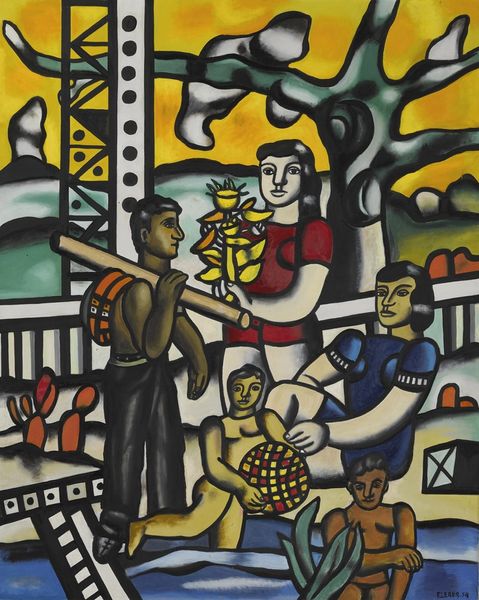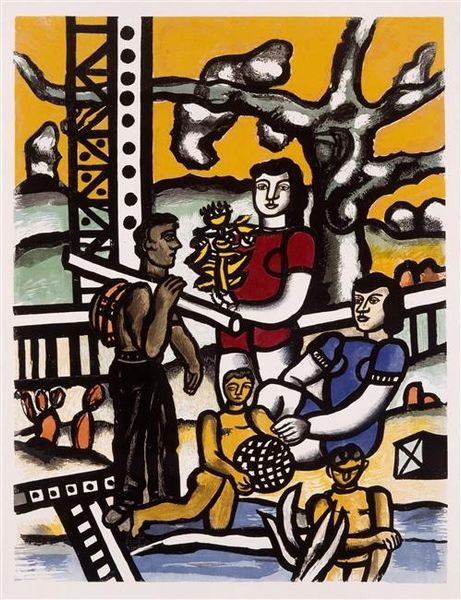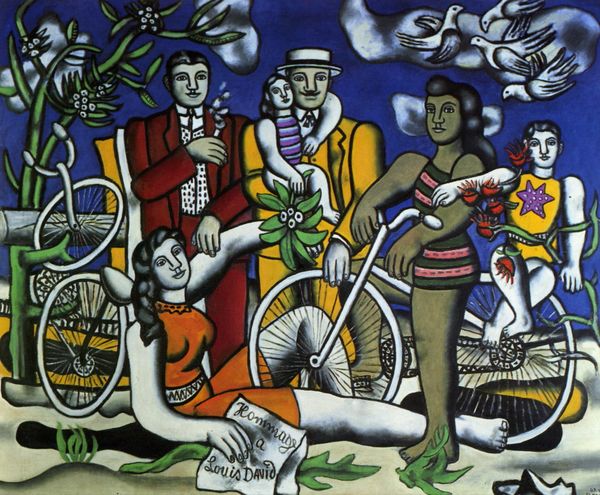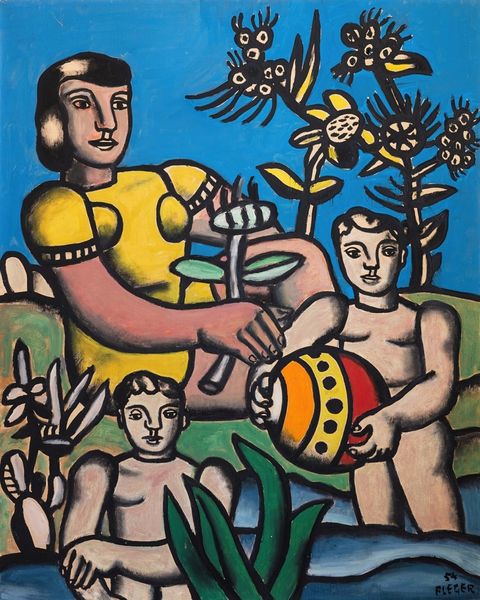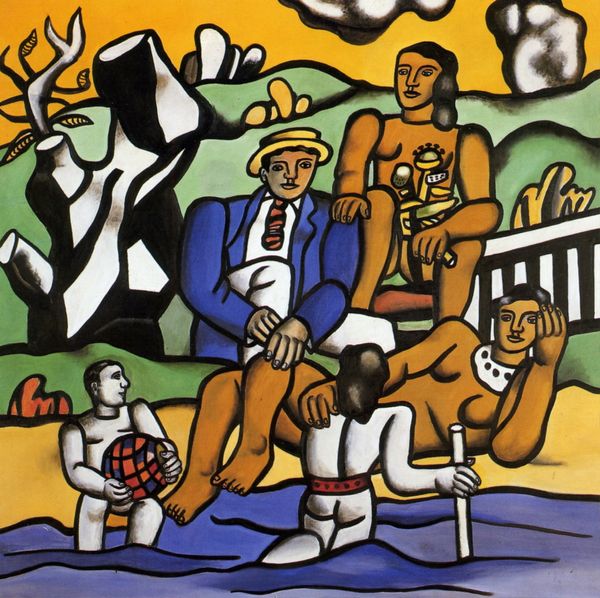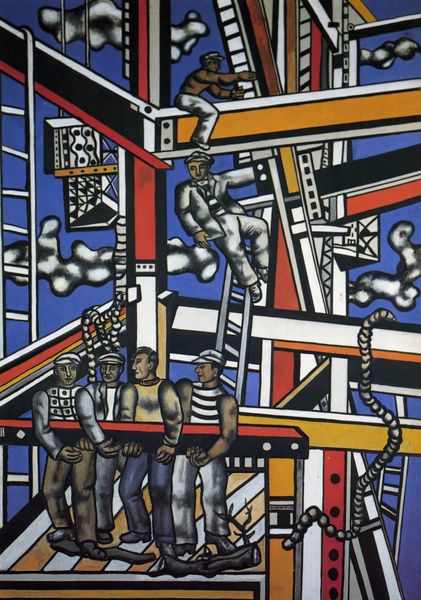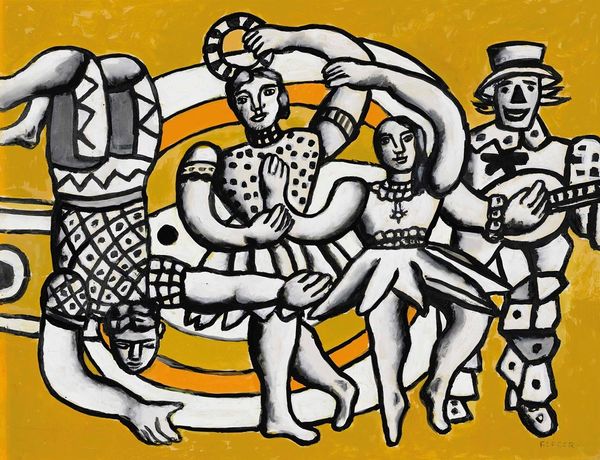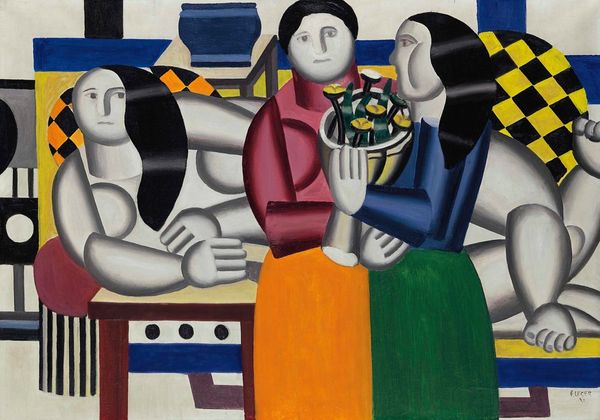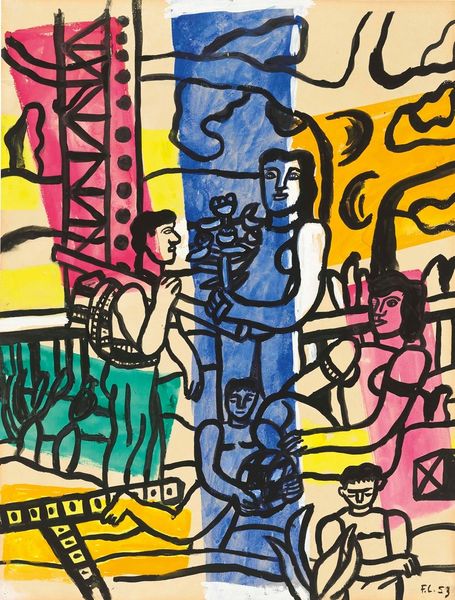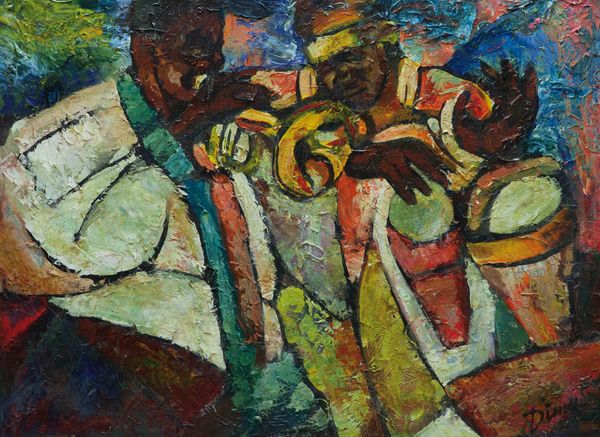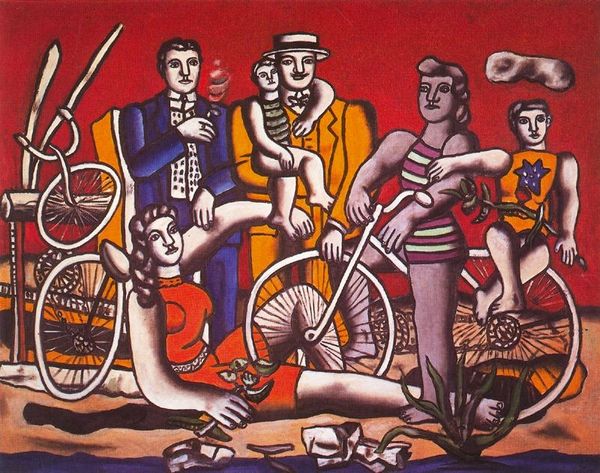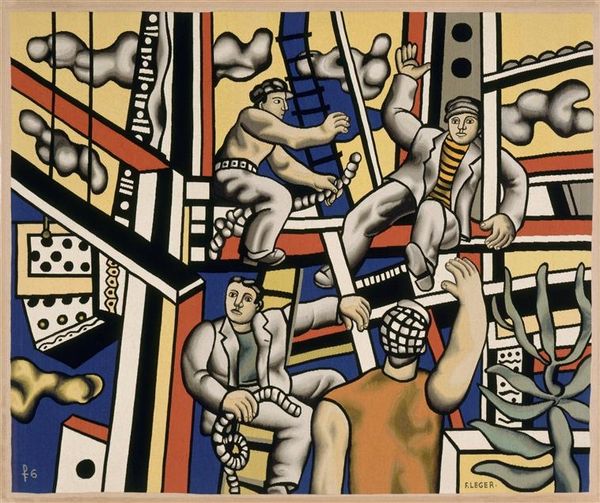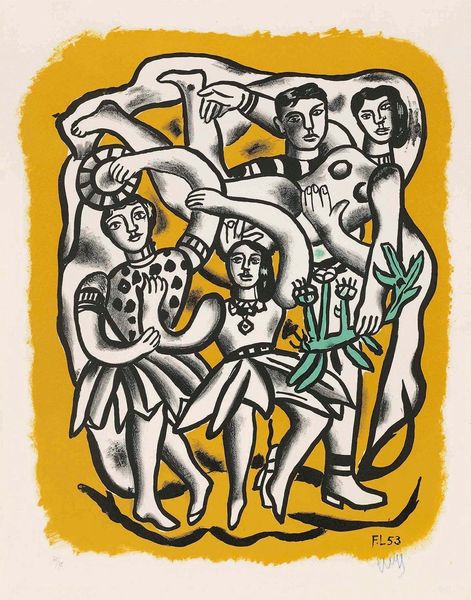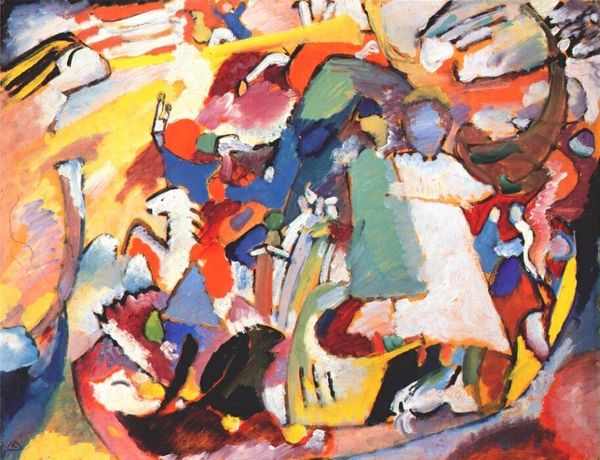
painting, oil-paint
#
cubism
#
narrative-art
#
painting
#
oil-paint
#
landscape
#
figuration
#
geometric
#
modernism
Copyright: Fernand Leger,Fair Use
Curator: Fernand Léger’s “The Camper,” painted in 1954, is a vibrant tableau that seems almost…optimistic. Editor: Optimistic, yes, but in a very specific postwar, constructivist way. Look at the bold lines and the almost machine-like depiction of the human figures. It reads to me as a statement about collective leisure, but one very aware of the social engineering underpinning it. Curator: Absolutely. Léger's engagement with Cubism is clear here. The forms are simplified, almost geometric, aren’t they? Note the interplay of line and plane, especially in how he renders the bodies and the background elements like the stylized scaffolding and the abstracted tree. It creates a flattened space, a kind of visual tension that pushes and pulls the eye. Editor: And what a scene it depicts! It’s seemingly a depiction of recreation by the water—but filtered through this very particular mid-century lens. Are these individuals on holiday, or are they symbols for a burgeoning working class? The ambiguous figures by the shore really add to that tension. What’s the meaning here of placing them alongside a simplified, modernized backdrop? Curator: The lack of naturalism actually heightens the painting's power. Léger isn't trying to recreate reality; he's constructing a visual language. That stark orange background flattens space further, throwing all the figures forward in stark relief. The lack of perspective forces you to confront the figures directly. And how he outlines them! The firm lines gives these figures weight and presence, an imposing physicality. Editor: But those flat colours, the almost cartoonish quality—isn't it also a commentary on industrialization and its potential for standardization? It could be argued that he's not celebrating progress as such, but really inviting us to think critically about it and its possible implications, in terms of individuality. This ‘camper’ isn’t necessarily free, even while at play. Curator: You've given me a new way to understand its ambivalence, the play between form and function. Perhaps we shouldn't be seeking definitive answers, but embracing the dialogue it creates between human representation, abstraction, and the industrial age. Editor: Yes, maybe the "Camper" doesn’t present easy answers, but a really intriguing glimpse into the aspirations and anxieties of a world rapidly transforming. It's a piece of history, rendered not just with pigment, but with intent.
Comments
No comments
Be the first to comment and join the conversation on the ultimate creative platform.
